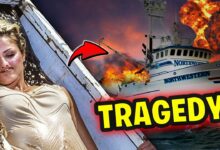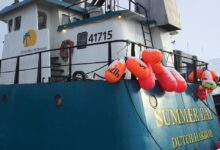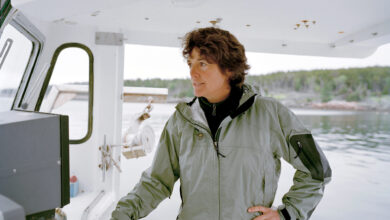The F/V Destination Capsized in February 2017, and 6 Crew Members Lost Their Lives
The F/V Destination Capsized in February 2017, and 6 Crew Members Lost Their Lives
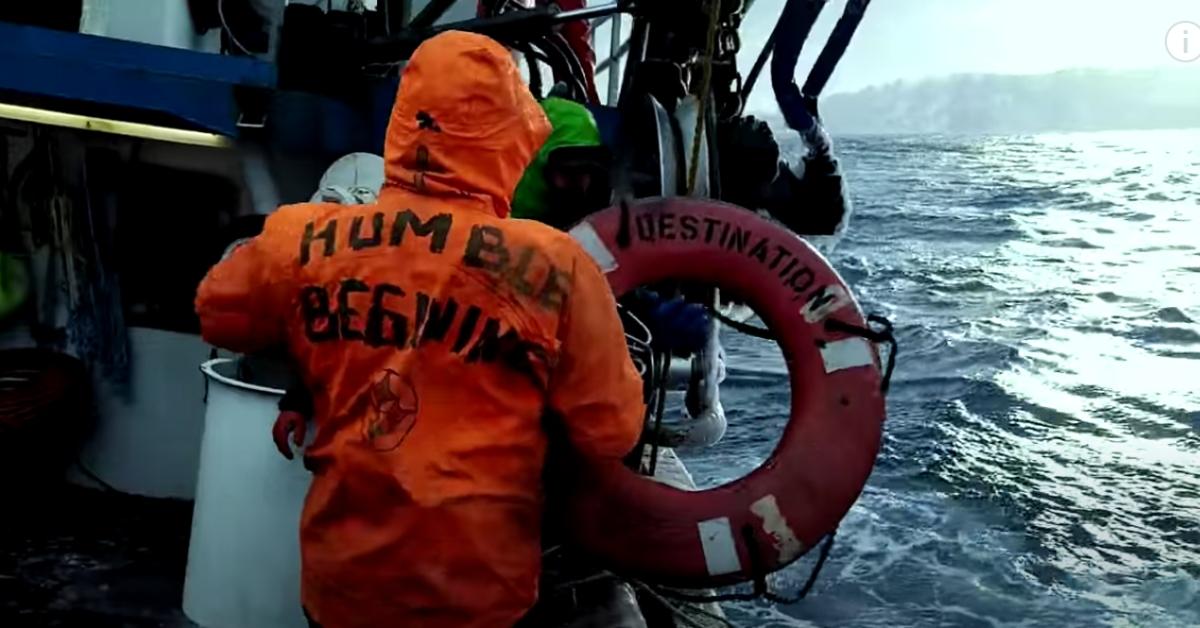
Season 17 of Deadliest Catch charts the latest challenges that seasoned captains like Sig Hansen and Jake Anderson and their respective crews have to face. The unprecedented complications caused by the coronavirus pandemic and the fast-changing weather conditions are some of the issues the fishermen have to tackle to keep their businesses alive. Season 17 captured several incidents, though none as bad as the tragedy that marked the end of the F/V Destination.
Here’s what happened to the F/V Destination on ‘Deadliest Catch.’
Deadliest Catch spotlights the heroic endeavors of fishermen with decades of experience. The cast members have to endure some of the worst and most inhumane conditions, such as typhoons, extreme cold, and rapid snowfall, as part of their work. But none of these compare to the horrors the crew of the F/V Destination had to undergo a few years ago. So, what happened?
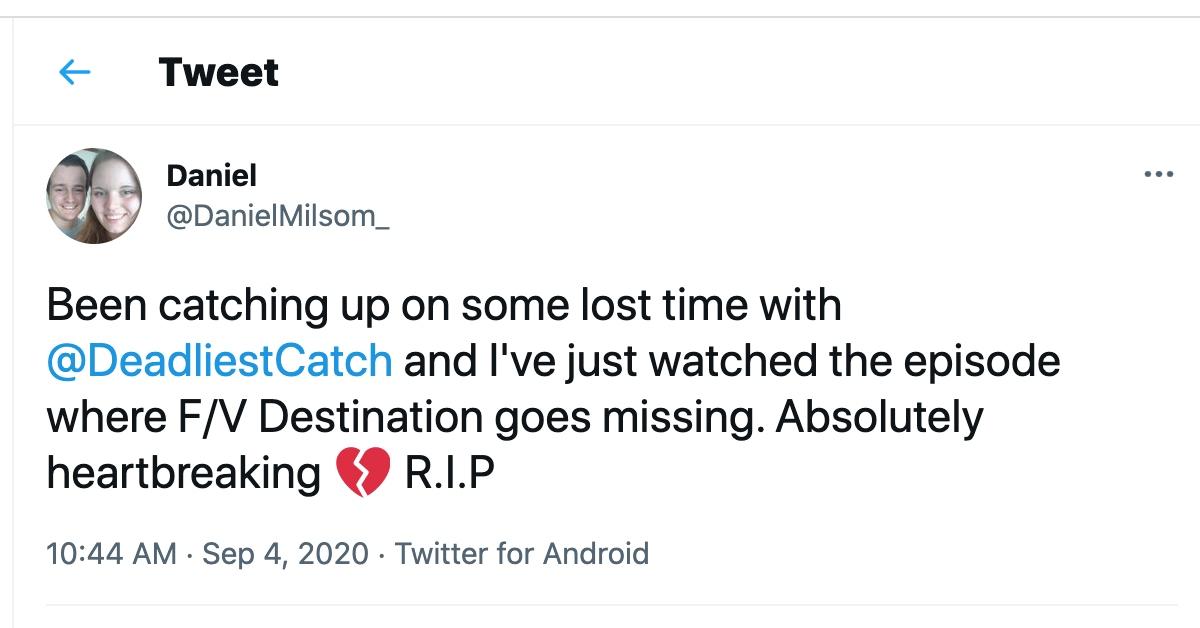
The atrocity is thought to have occurred on Feb. 11, 2017. Some believe that the crew was too eager to make it back on time to their destination and off-load the 200 crab pots on board. Instead of anchoring down and beating more ice, they are thought to have chosen to steam ahead — which could have caused their downfall.
It’s understood that the fishing vessel capsized after it became weighed down by an estimated 340,000 pounds of ice. No mayday call was made. The F/V Destination sank near St. George Island, Alaska. The six crew members, Captain Jeff Hathaway, Darrik Seibold, Kai Hamik, Larry O’Grady, Raymond Vincler, and Charles G. Jones, all lost their lives.
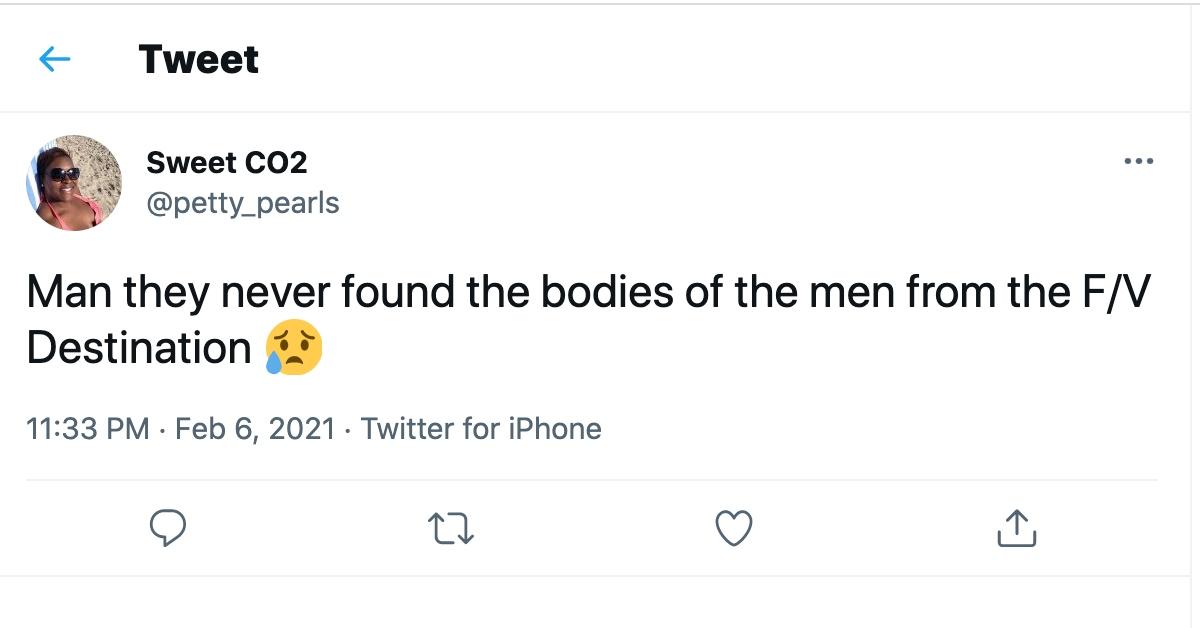
“Whatever happened happened very, very quickly, and there’s no one left to tell their story,” Chris O’Neil, a spokesperson for the National Transportation Safety Board (NTSB), told KUCB. “The captain’s decision to proceed into heavy freezing spray conditions — without ensuring the Destination had a margin of stability to withstand that accumulation of ice — led to the loss of the vessel.”
The atrocity sent shockwaves through the broader community. Nearly 50 boats volunteered to undergo stability checks, as per KUCB. The catastrophe sparked captains and crew members to pay more attention to how they run their boats.
But people like Dylan Hatfield were even more shaken up by the catastrophe. As a former crew member on the F/V Destination, Dylan helped his brother, Darrik, and a close friend, Kai, get jobs on the crab boat.
“There’s not enough alcohol in the world to drown those memories or suppress those images,” Dylan told Anchorage Daily News. “I should have been there. It should never have been my brother. You wake up and you’re alive and part of you wished you weren’t.”
The NTSB published its final report on the tragedy in July 2018. As they outline, the crew of the F/V Destination likely had to face unexpected complications because of heavy freezing spray. According to National Fisherman, recent alterations to the boat, such as the addition of heavier crab pots and the installation of the bulbous bow and the new bulwark at the bow, played a role in the catastrophe as well.
